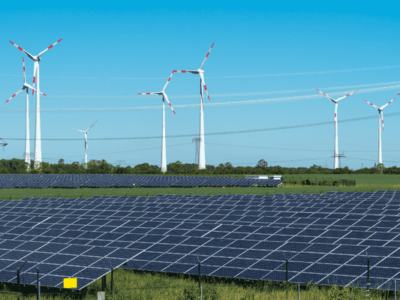Research has identified, for the first time, how global warming is related to the amount of carbon emitted.
A team of researchers from the universities of Southampton, Bristol and Liverpool have derived the first theoretical equation to demonstrate that global warming is a direct result of the build-up of carbon emissions since the late 1800s when man-made carbon emissions began. The results are in accord with previous data from climate models.
The theoretical equation reveals the complex relationship between carbon dioxide levels and the ocean system. Burning fossil fuels increases atmospheric carbon dioxide levels leading to global warming and the greenhouse effect, which is partly offset by the oceans taking in both heat and carbon.
The results show every million-million tonnes of carbon emitted will generate one degree Celsius of global warming. They also show that the build-up of carbon emitted over the last 200 years will then last for many centuries to millennia, even if carbon emissions are subsequently phased out.
The results also reveal that surface warming is related to the total amount of carbon emitted from fossil fuels, with little change over time as ocean carbon and changes in heat uptake almost cancel each other out.
Dr Phil Goodwin, from Ocean and Earth Science at the University of Southampton, said: “Our analysis highlights the nearly irreversible nature of carbon emissions for global warming. Once carbon has been emitted into the atmosphere the warming effect will last many centuries, even after much of the carbon has been absorbed by the ocean.”
“We cannot wait until after significant anthropogenic warming has occurred to reduce carbon emissions and hope the climate goes back to normal by itself, it won’t.”
Professor Ric Williams, Chair in Ocean Sciences at the University of Liverpool’s School of Environmental Sciences, added: “Given the complexity of the climate system, it was a surprise to find out how simple the relationship is between global warming and how much carbon we emit.
“The ocean turns out to be crucial by taking up both heat and carbon, which lead to nearly compensating effects in how surface warming depends on carbon emissions.
“These findings potentially address the most important finding from the Intergovernmental Panel on Climate Change (IPCC) report last year, which is how global warming increases with how much carbon we emit.
“In terms of wider policy implications, our theory reiterates a simple message: the more cumulative carbon emissions are allowed to increase, the more global surface warming will also increase.
“This policy implication reinforces the need to develop carbon capture techniques to limit the warming for the next generations.”
References:
Publication: Philip Goodwin et al — Sensitivity of climate to cumulative carbon emissions due to compensation of ocean heat and carbon uptake. Nature Geoscience, 2014.
Article: Research confirms how global warming links to carbon emissions — University of Southampton, December 1, 2014















Comments